Discover Daybreak
Daybreak

Daybreak
Author: The Ken
Subscribed: 22,178Played: 210,373Subscribe
Share
© (c) 2023 The Ken
Description
Business news is complex and overwhelming. It doesn’t have to be. Every day of the week, from Monday to Friday, Daybreak tells one business story that’s significant, simple and powerful.
Hosted from The Ken’s newsroom by Snigdha Sharma and Rachel Varghese, Daybreak relies on years of original reporting and analysis by some of India’s most experienced and talented business journalists.
Hosted from The Ken’s newsroom by Snigdha Sharma and Rachel Varghese, Daybreak relies on years of original reporting and analysis by some of India’s most experienced and talented business journalists.
693 Episodes
Reverse
Across India, many heirs are stepping away from running their inherited businesses to run family offices instead. They see investing as more flexible, more global, and less tied to daily operations.Their parents built factories but they are more interested in managing portfolios.It’s a practical shift but one that’s changing how old wealth works and what it values.What’s driving this change and does India’s next generation of uber-rich business owners still want to build anything at all?Tune in.*This episode was originally published on October 15th 2025Daybreak is produced from the newsroom of The Ken, India’s first subscriber-only business news platform. Subscribe for more exclusive, deeply-reported, and analytical business stories.
In late January, a plane crash in Maharashtra killed the state's deputy chief minister, Ajit Pawar. It also exposed something few had been paying attention to: India's booming private charter industry, where demand is surging, corners are being cut, and the regulator is struggling to keep pace. There are now over 430 non-scheduled aircraft in the country. The top operator alone has 17 planes and 70-plus pilots. But between periodic audits, years-long crash investigations, and operators who'd rather fly with a broken light than lose a booking — the cycle of crash, probe, and forget has a way of repeating itself.Tune in.Daybreak is produced from the newsroom of The Ken, India’s first subscriber-only business news platform. Subscribe for more exclusive, deeply-reported, and analytical business stories.
Private equity has been buying up some of India's most prestigious schools. The pitch: better governance, professional management, and much-needed capital for a struggling sector.But inside some of these acquisitions, something else is happening. Teacher training budgets are shrinking. Salaries are stagnating. And in at least one case, a school is paying 65% of its revenue in rent — to a landlord owned by the same firm that owns the school.Some investors have made it work. Others have changed something harder to measure.In this episode, hosts Snigdha Sharma and Rachel Varghese speak to The Ken reporters Valli Vikram and Mutasim Khan about how private-equity firms squeeze money out of schools and what that does to them.Read the stories here:Private equity’s priority for Indian schools: pickleball courts over teacher training by Valli VikramThe private-equity handbook for turning non-profit schools into cash cows by Mutasim KhanIf you have any thoughts on this episode write to us at podcasts@the-ken.com with Daybreak in the subject line. You can also leave us a comment on our website or the YouTube channel here.Disclosure: Reporter Valli Vikram comes from a family that previously owned a school acquired partially by International Schools Partnership (ISP)Daybreak is produced from the newsroom of The Ken, India’s first subscriber-only business news platform. Subscribe for more exclusive, deeply-reported, and analytical business stories.
This week, on Tuesday, India announced a sweeping overhaul of how it calculates GDP, fixing a measurement system the IMF had flagged as outdated just last November. It includes a new base year, better price data, and a wider net to count the informal economy. The number seems to be getting closer to reality.But that raises a harder question. For a country that has built its global identity around being the world's fastest growing major economy, what happens when the arithmetic changes? And does any of it actually reach 1.4 billion people?Host Snigdha Sharma explores.Tune in.If you have any thoughts on this episode write to us at podcasts@the-ken.com with Daybreak in the subject line. You can also leave us a comment on our website or the YouTube channel here.Daybreak is produced from the newsroom of The Ken, India’s first subscriber-only business news platform. Subscribe for more exclusive, deeply-reported, and analytical business stories.
The next frontier of AI isn't in your phone. It's supposed to be around your neck, on your face, in your ear and out in the world with you. Tech companies have spent billions on that pitch. The generation they were counting on to buy it coined the term "hammerbait" instead. Today: the wearable AI moment, what it gets wrong, and the one version of this technology that might actually be worth wanting. Host Rachel Varghese explores.Tune in.Read Song's review of Friend here. Rachel here! I didn't start reading a tech review expecting a truly heartwarming take on real friendships, but it works!Daybreak is produced from the newsroom of The Ken, India’s first subscriber-only business news platform. Subscribe for more exclusive, deeply-reported, and analytical business stories.
China’s stock market has delivered strong returns over the past year and a half. It has outperformed the US, which has long been the preferred global market for Indian investors. Even now, Chinese valuations appear relatively reasonable.But Indian investors face limited access. Only two mutual fund schemes currently accept fresh investments in Chinese stocks.Even if more options open up, experts advise restraint. The rally is tempting but experts warn investors from getting carried away.Tune in.Got a tip? If you have a lead for a great story that The Ken can pursue, please send it to tips@the-ken.com or share it through this form. To find out more about how to do this securely, read our blog post about sharing tips with The Ken.Daybreak is produced from the newsroom of The Ken, India’s first subscriber-only business news platform. Subscribe for more exclusive, deeply-reported, and analytical business stories.
Hosur built India's EV industry. Now it's running out of room — and a city many haven't heard of (mainly because it used to be Aurangabad) is quietly filling the gap.Sambhajinagar doesn't have Silicon Valley-style VC money or flashy government announcements. But what it does have is something harder to manufacture: a generational automotive ecosystem of factory owners, built over decades, now scaling up for an electric future.Toyota noticed. And Ather. And JSW. This is the story of how a small city in Maharashtra became the surprising centre of India's next industrial bet.If you have any thoughts on this episode write to us at podcasts@the-ken.com with Daybreak in the subject line. You can also leave us a comment on our website or the YouTube channel here.Daybreak is produced from the newsroom of The Ken, India’s first subscriber-only business news platform. Subscribe for more exclusive, deeply-reported, and analytical business stories.
India hosted the world's biggest AI summit this week — 100+ nations, $200 billion in commitments, and enough billionaire handshakes to fill a highlight reel. But beneath the spectacle lies a sharper question: when will it be India’s turn to build AI, instead of just buying into it? Snigdha breaks down the gap between infrastructure ambition and intelligence sovereignty. In other news, Mark Zuckerberg walked into a US courtroom as Meta, YouTube, TikTok and Snapchat face a landmark trial. The allegation? That teen addiction wasn't an unfortunate byproduct of the way social media works — it was built into the product. Rachel explains why this case could change everything.If you have any thoughts on this episode write to us at podcasts@the-ken.com with Daybreak in the subject line. You can also leave us a comment on our website or the YouTube channel here.Daybreak is produced from the newsroom of The Ken, India’s first subscriber-only business news platform. Subscribe for more exclusive, deeply-reported, and analytical business stories.
Big Tech is preparing to spend $650 billion on AI infrastructure this year, a figure that rivals national economies. The focus is agentic AI, systems designed not just to generate answers but to execute tasks independently.The vision is software that can read your messages, access your calendar, contact your friends, move money and complete transactions without step by step supervision. In effect, technology that can act in the world on your behalf.To function, these systems require sweeping access to personal and corporate data. Critics warn this amounts to asking users to “put your brain in a jar.”What exactly is being built and who bears the risk?If you have any thoughts on this episode write to us at podcasts@the-ken.com with Daybreak in the subject line. You can also leave us a comment on our website or the YouTube channel here.Daybreak is produced from the newsroom of The Ken, India’s first subscriber-only business news platform. Subscribe for more exclusive, deeply-reported, and analytical business stories.
Anthropic just set up in Bangalore, announcing partnerships across health, education, and government. The "ethical AI" company is positioning itself as the responsible alternative to OpenAI.But the Wall Street Journal revealed the US military used Claude to help capture Venezuela's former president—violating Anthropic's own guidelines prohibiting violence and surveillance.Now the US government wants Anthropic to drop those restrictions entirely. The company is caught between its founding principles and its home government's demands, which brings up questions about data sovereignty into focus. Host Rachel Varghese digs in. *The host mistakenly says NCPI instead of NPCIListen to my episode on Claude Cowork and the "SaaSpocalypse" here. Listen to Snigdha's episode on why ChatGPT is cheapest in India here. If you have any thoughts on this episode write to us at podcasts@the-ken.com with Daybreak in the subject line. You can also leave us a comment on our website or the YouTube channel here.Daybreak is produced from the newsroom of The Ken, India’s first subscriber-only business news platform. Subscribe for more exclusive, deeply-reported, and analytical business stories.
Over the past six months, Blinkit has been making a structural shift that most customers would never notice. For years, its fresh fruits and vegetables were sourced by Hyperpure, its own parent company Eternal’s business-to-business arm that also supplies restaurants. As Blinkit grew into Eternal’s primary revenue driver, Hyperpure grew with it. In FY25, more than 60% of Hyperpure’s revenue came from Blinkit.Then Blinkit decided to source its own inventory.Hyperpure’s revenue more than halved in two quarters. It is now separating its books and rebuilding around restaurants.What does the split mean?If you have any thoughts on this episode write to us at podcasts@the-ken.com with Daybreak in the subject line. You can also leave us a comment on our website or the YouTube channel here.Daybreak is produced from the newsroom of The Ken, India’s first subscriber-only business news platform. Subscribe for more exclusive, deeply-reported, and analytical business stories.
A mutual fund executive told our colleague something shocking: "SIPs are a problem." Part of the shock came from the fact that it was coming from someone in an industry that was basically built on "SIP sahi hai."Now a new research paper backs up that controversial take—and the findings contradict what millions of Indian investors have been told about systematic investment plans.Turns out the marketing narrative around SIPs has some serious gaps. The math tells a different story. And with small-cap SIP assets exploding 6.5x since 2019, the stakes have never been higher.So when are SIPs actually appropriate?Tune in.If you have any thoughts on this episode write to us at podcasts@the-ken.com with Daybreak in the subject line. You can also leave us a comment on our website or the YouTube channel here.Daybreak is produced from the newsroom of The Ken, India’s first subscriber-only business news platform. Subscribe for more exclusive, deeply-reported, and analytical business stories.
On February 12, 2026, Adani Power formed Adani Atomic Energy Ltd, a new unit to generate, transmit, and distribute nuclear power. This follows the SHANTI Bill opening India's nuclear sector to private firms. Both Adani Power and Tata Power, coal giants with long-life thermal plants, now lead the shift.Coal powers 74% of India's grid today. These firms profit big from it. So what happens when they control nuclear's pace too? Snigdha explores the conflict.In other news, top AI researchers have been quitting the big AI labs. Anthropic's Mrinank Sharma left over value clashes (X letter) and OpenAI's Zoe Hitzig resigned through an NYT op-ed, warning ads exploit chatbot user confessions for manipulation. Rachel breaks down how firms chase cash to scale and skip safety guardrails.Listen to our episode on AI taking over jobs here. And, here's another one we did on the previous exodus of AI talent. Read Zoe Hitzig's opinion piece on NYT here. If you have any thoughts on this episode write to us at podcasts@the-ken.com with Daybreak in the subject line. You can also leave us a comment on our website or the YouTube channel here.Daybreak is produced from the newsroom of The Ken, India’s first subscriber-only business news platform. Subscribe for more exclusive, deeply-reported, and analytical business stories.
On February 10, 2026, reports said nearly 100 NDTV employees were put on performance improvement plans, often seen as a prelude to layoffs. This comes after the Adani Group acquired NDTV in December 2022 for about ₹600 crore, followed by several high profile exits. A similar moment unfolded at Jeff Bezos-owned The Washington Post last week where hundreds were laid off and multiple sections and bureaus shut. Both Adani and Bezos run highly profitable core businesses. News is not one of them. So why invest heavily in an industry known for low margins? Host Snigdha Sharma explores.If you have any thoughts on this episode write to us at podcasts@the-ken.com with Daybreak in the subject line. You can also leave us a comment on our website or the YouTube channel here.Daybreak is produced from the newsroom of The Ken, India’s first subscriber-only business news platform. Subscribe for more exclusive, deeply-reported, and analytical business stories.
In early February, Indian IT stocks crashed 6% in a single day—the worst selloff in six years. ₹2 lakh crore vanished. Wall Street lost $300 billion.The trigger? Anthropic launched Claude Cowork, an AI agent that can organize files, parse spreadsheets, and write reports autonomously. For the first time, AI doesn't just assist—it executes entire workflows with minimal supervision. Investors panicked, and experts coined the term "SaaSpocalypse." But is this really the end of software companies, or are we watching an overreaction? Today, host Rachel Varghese unpacks both sides.Tune in.Listen to our episode on Deloitte's AI blunder here. If you have any thoughts on this episode write to us at podcasts@the-ken.com with Daybreak in the subject line. You can also leave us a comment on our website or the YouTube channel here.Daybreak is produced from the newsroom of The Ken, India’s first subscriber-only business news platform. Subscribe for more exclusive, deeply-reported, and analytical business stories.
PhonePe is heading to the public markets as India’s largest UPI player. On 21 January, the company made its IPO papers public, setting up one of the most closely watched fintech listings in years. PhonePe dominates transaction volumes, but it is listing after Paytm, whose 2021 IPO reshaped how investors value payments companies. Since then, Paytm’s stock has fallen sharply from its debut even as its business has evolved. PhonePe is seeking a valuation premium while still reporting losses and facing pressure on some revenue streams. As investors weigh scale against profitability, one question looms. Will Paytm's market memory still decide PhonePe’s IPO price?Tune in.If you have any thoughts on this episode write to us at podcasts@the-ken.com with Daybreak in the subject line. You can also leave us a comment on our website or the YouTube channel here.Daybreak is produced from the newsroom of The Ken, India’s first subscriber-only business news platform. Subscribe for more exclusive, deeply-reported, and analytical business stories.
In November, Decathlon began piloting two-hour deliveries across 10 Indian cities.It's a surprising move for a company that just swung into losses—and it raises a question the rest of the sector is watching closely: can the economics of fashion quick-commerce actually work?More than 50 million dollars has flowed into the space in 18 months. At least one startup has already shut down. The problem isn't speed. It's frequency, inventory, and unit economics that refuse to close.Tune in.If you have any thoughts on this episode write to us at podcasts@the-ken.com with Daybreak in the subject line. You can also leave us a comment on our website or the YouTube channel here.Daybreak is produced from the newsroom of The Ken, India’s first subscriber-only business news platform. Subscribe for more exclusive, deeply-reported, and analytical business stories.
Karnataka keeps talking about decentralizing tech beyond Bengaluru. Its neighbors are actually doing it.Tamil Nadu, Telangana, and Andhra Pradesh are building tech cities from scratch—tier-2 clusters with land banks, fast-track approvals, and statutory bodies with real power. Major companies are choosing Visakhapatnam and Tirupati over Bengaluru now.The difference? Decision-making authority. Karnataka's development body is stuck in a promotional role while other states hand their institutions the teeth to actually execute. One state makes announcements. The others are laying fiber, clearing land, and signing deals.Southern India's tech map is being redrawn. Just not by the state that started it all.If you have any thoughts on this episode write to us at podcasts@the-ken.com with Daybreak in the subject line. You can also leave us a comment on our website or the YouTube channel here.Daybreak is produced from the newsroom of The Ken, India’s first subscriber-only business news platform. Subscribe for more exclusive, deeply-reported, and analytical business stories.
Two days ago, the United States said it would cut tariffs on Indian goods to 18%, down from levels that had gone as high as 50%. Markets reacted fast. Stocks rose. The rupee strengthened. The first feeling was relief. It sounded like the trade fight with Washington and Donald Trump was easing.Then more details emerged. U.S. officials said India would commit to buying over $500 billion worth of American goods. They also said U.S. tariffs would stay at 18%, while India would allow zero tariffs on some American products.That relief started to feel more layered.Just days earlier, India had signed the “mother of all trade deals” with Europe.So why did India still move on this U.S. deal, now and on these terms?Host Snigdha Sharma dives in.Listen to our previous episode on the India-EU trade deal here: The 'mother of all trade deals' promises cheaper imports. Prices are another storyIf you have any thoughts on this episode write to us at podcasts@the-ken.com with Daybreak in the subject line. You can also leave us a comment on our YouTube channel here. Daybreak is produced from the newsroom of The Ken, India’s first subscriber-only business news platform. Subscribe for more exclusive, deeply-reported, and analytical business stories.
Amazon fired 16,000 workers last month. Oracle is set to cut up to 30,000 more.Tech layoffs have increasingly been attributed to AI. But Oxford Economics found something strange: there's no macroeconomic data showing AI is actually replacing jobs or boosting productivity. In fact, output per worker is slowing, not accelerating.So what's really happening? Host Rachel Varghese breaks it down.Daybreak is produced from the newsroom of The Ken, India’s first subscriber-only business news platform. Subscribe for more exclusive, deeply-reported, and analytical business stories.


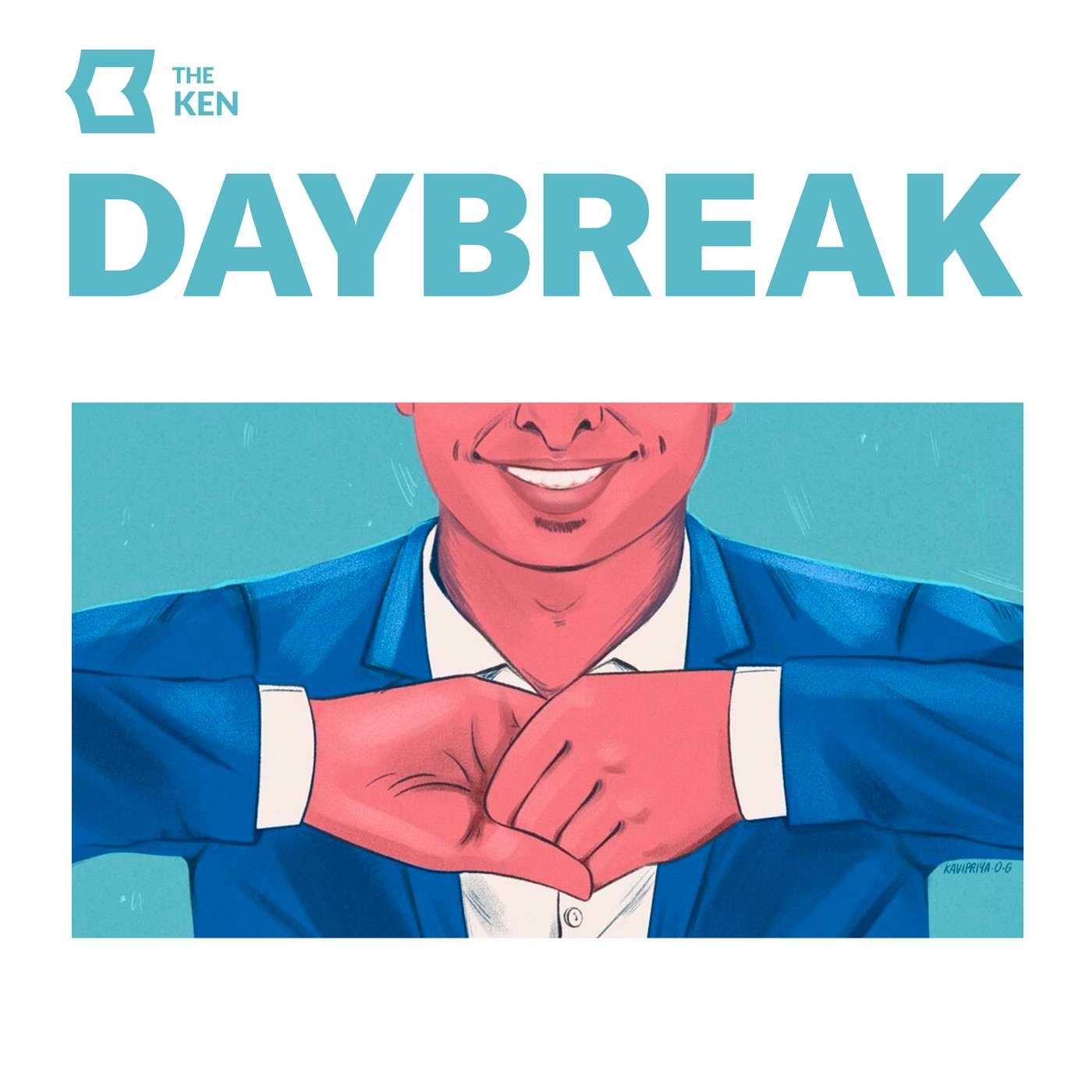
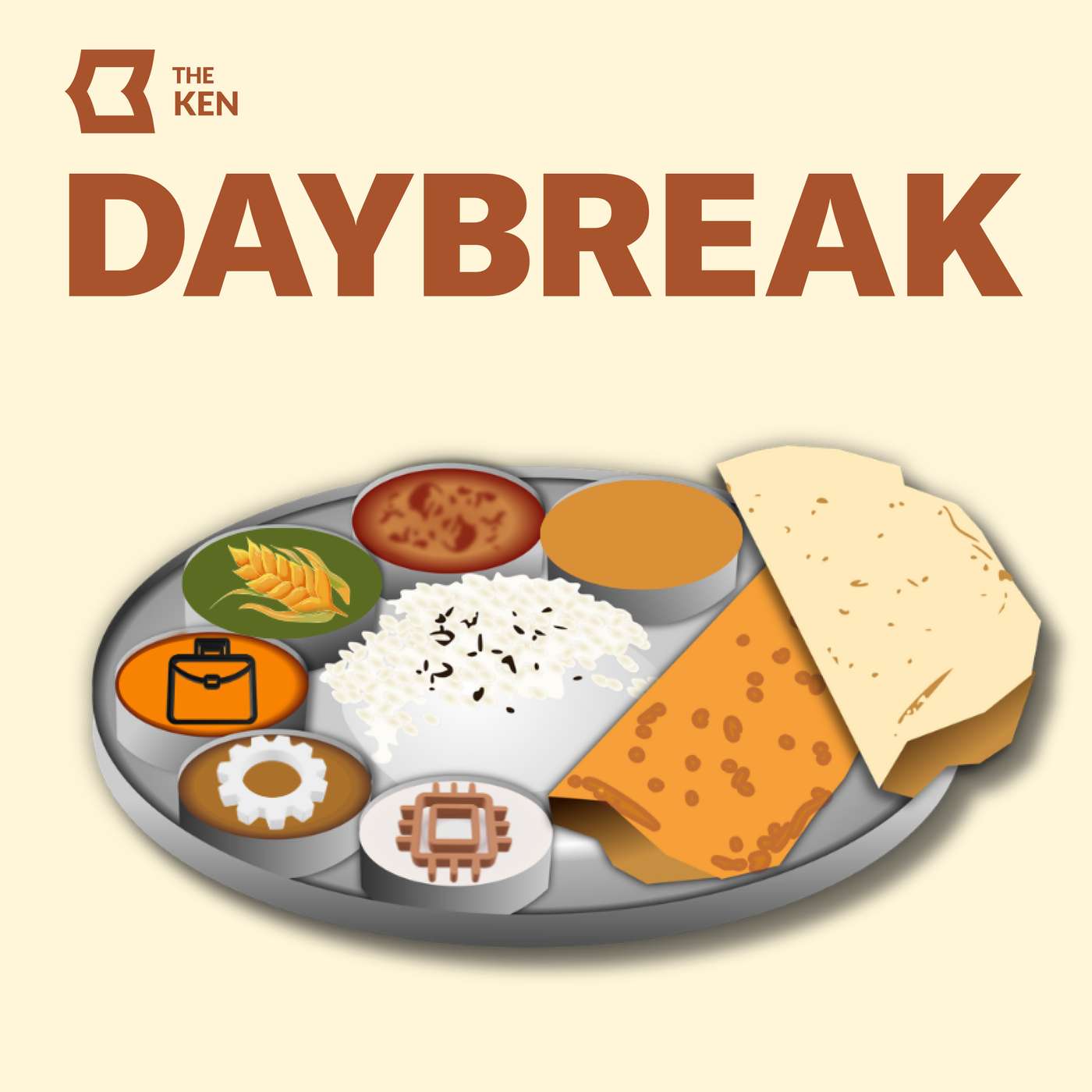
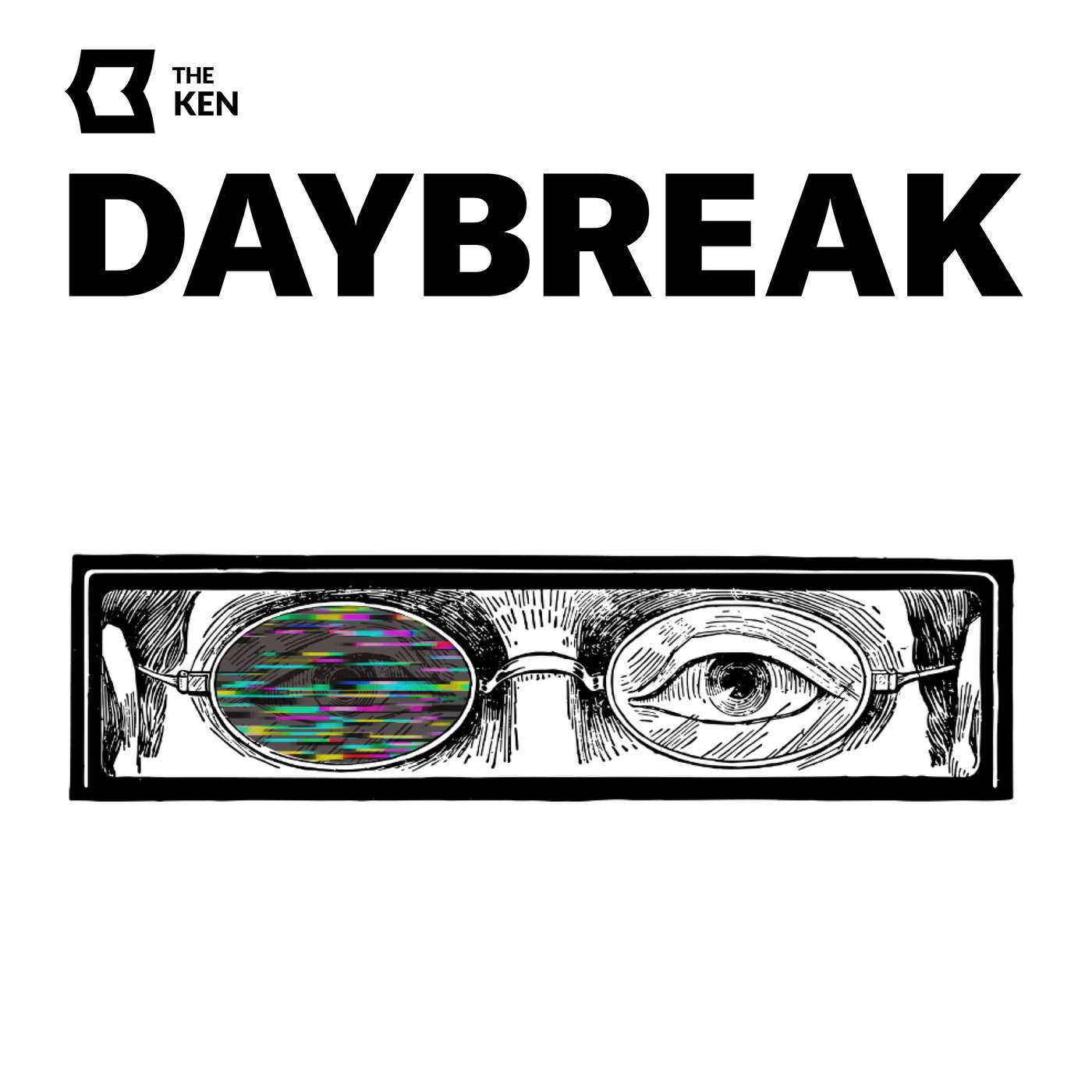
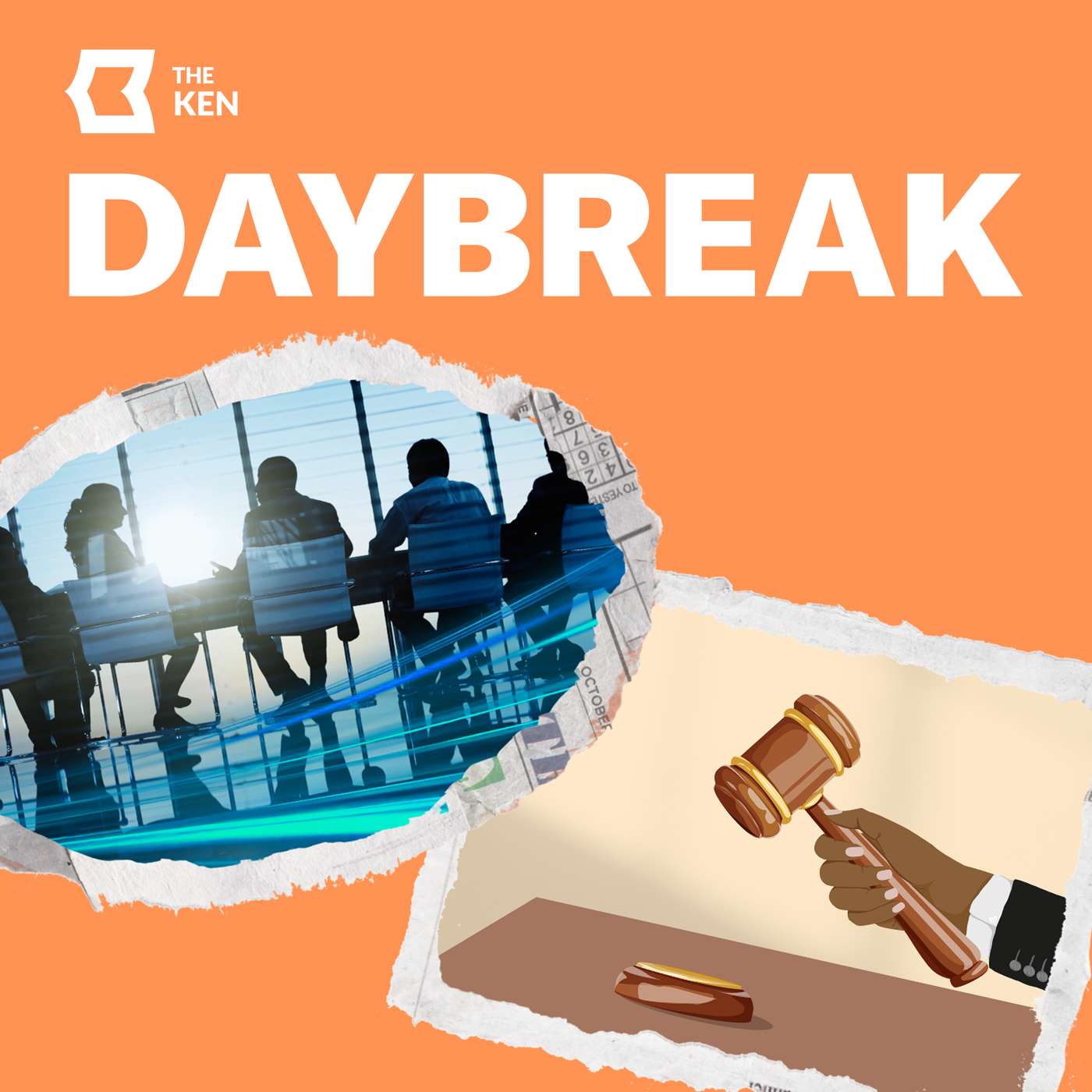
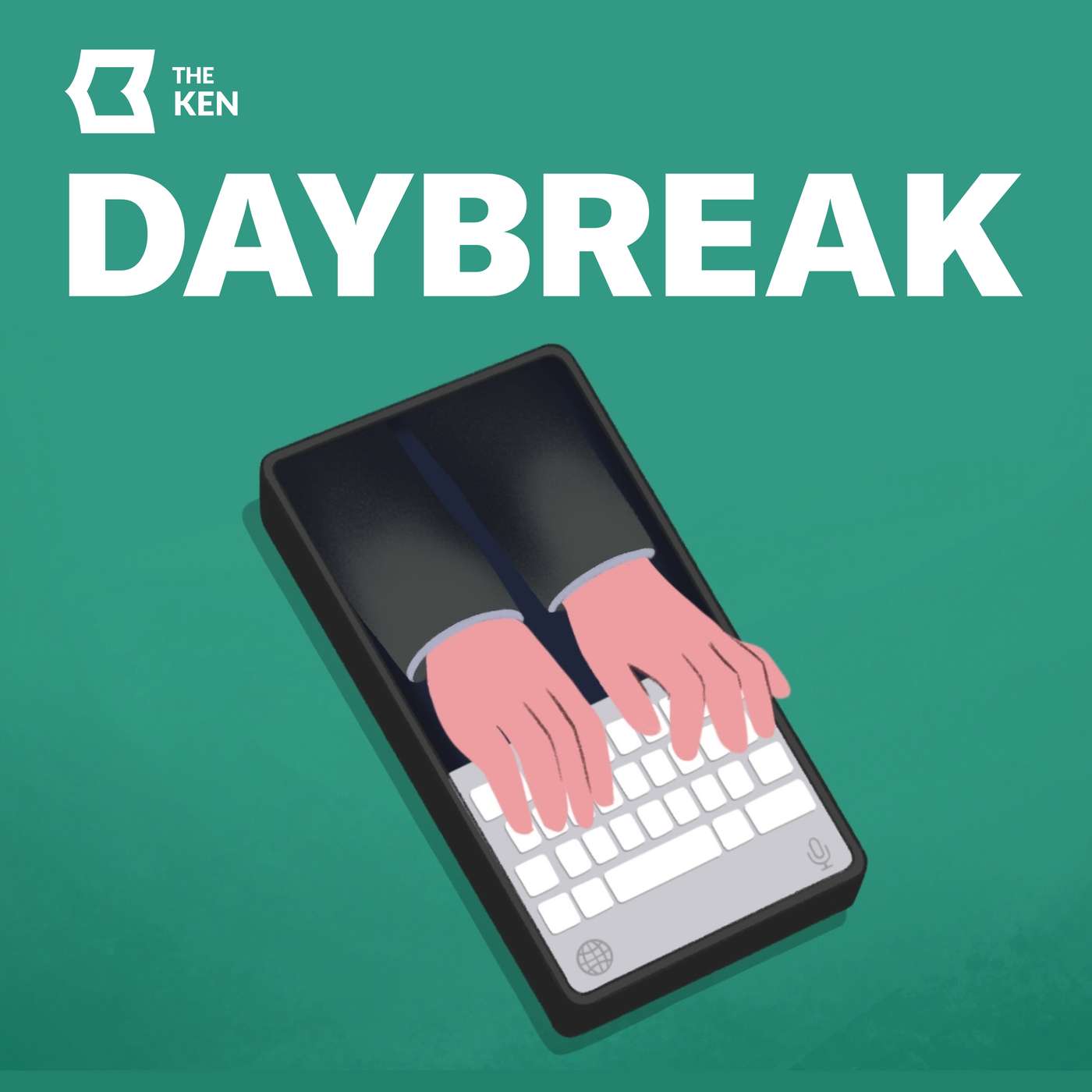
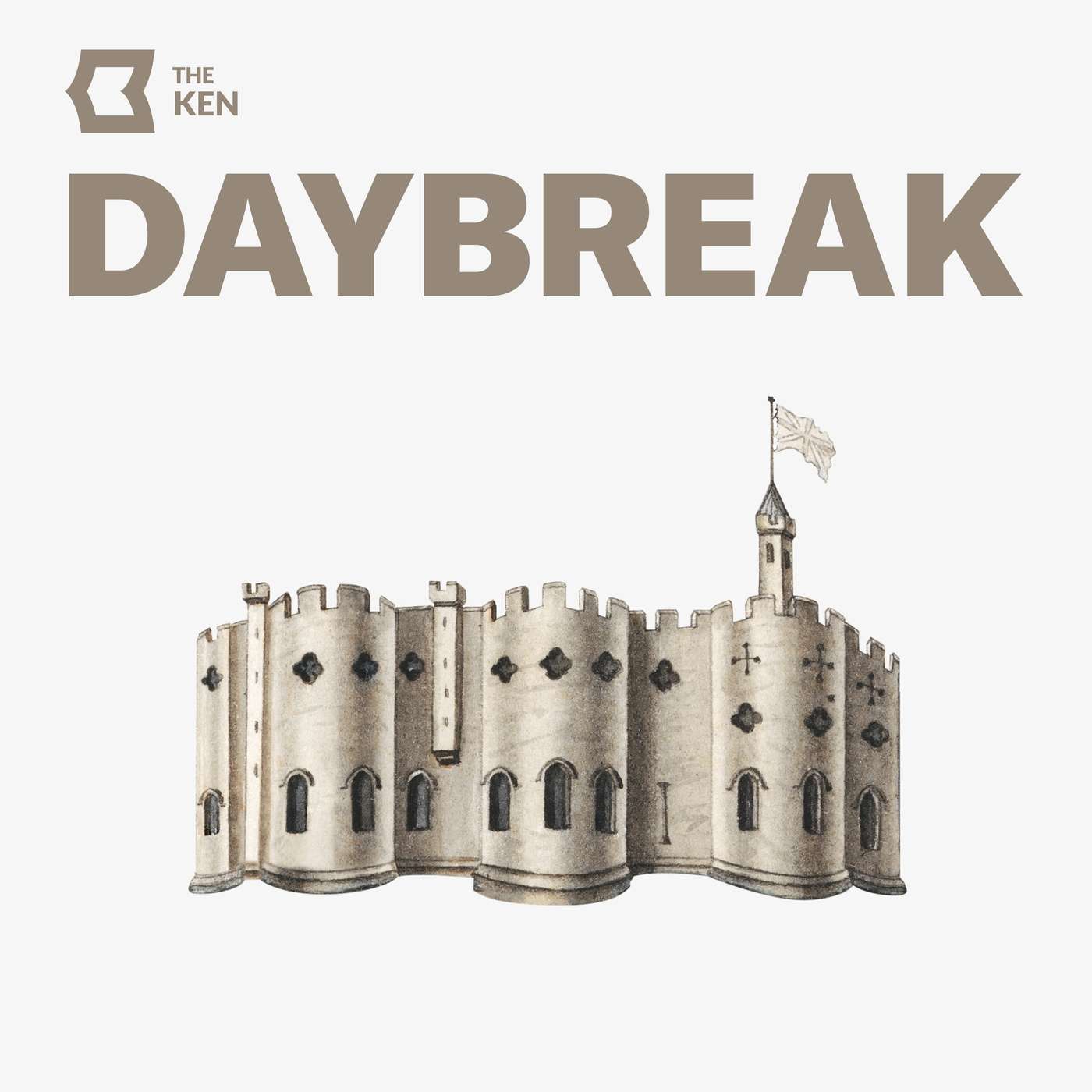
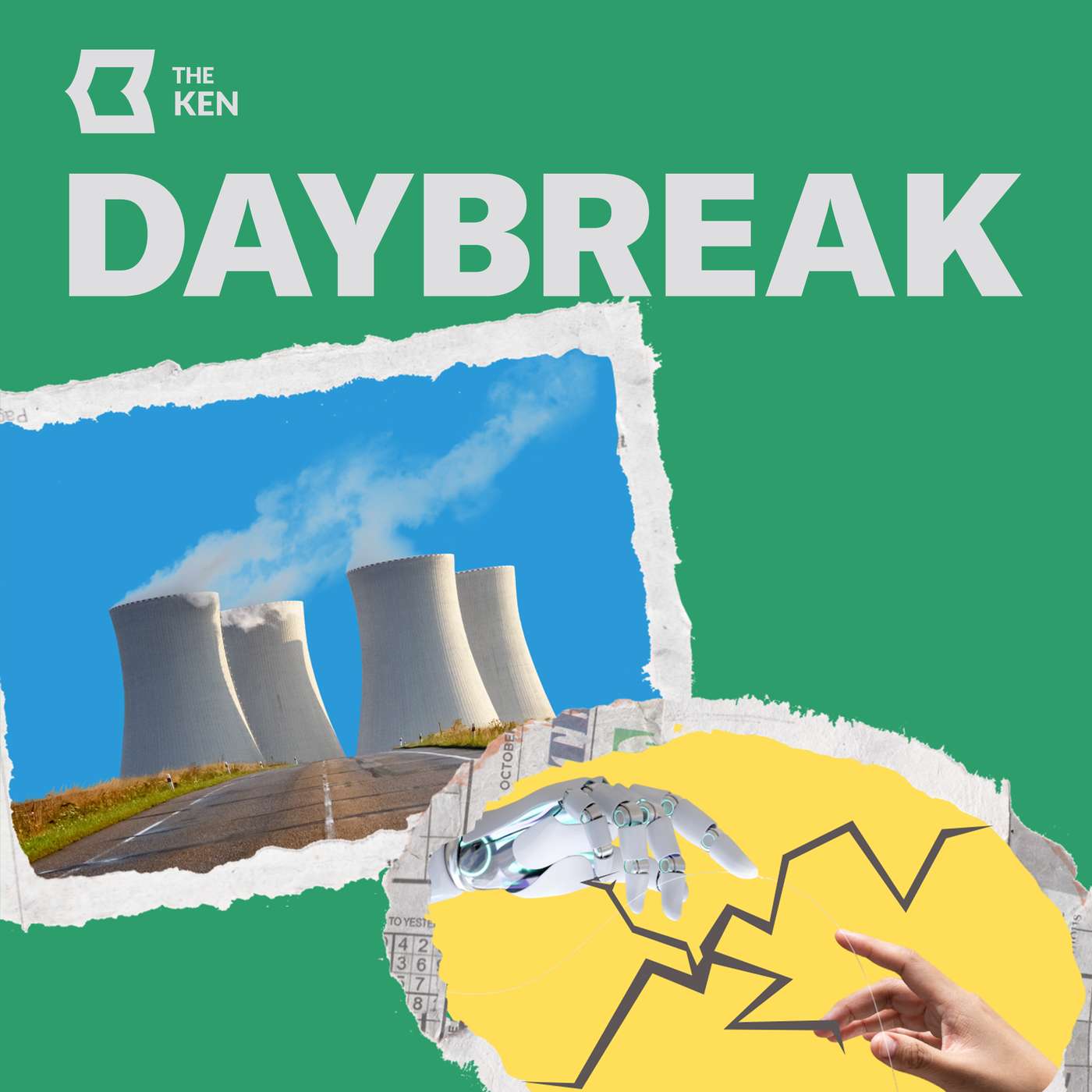
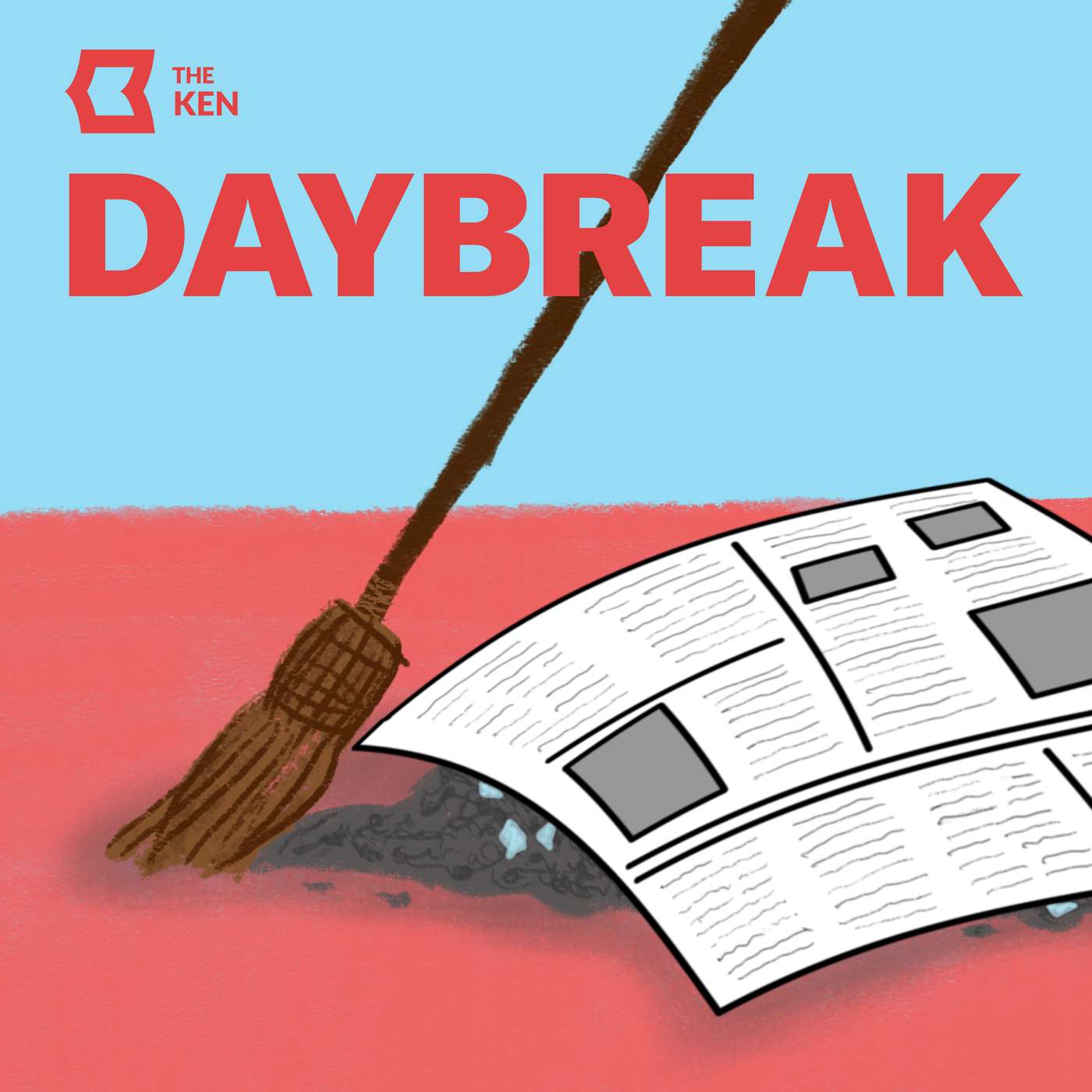
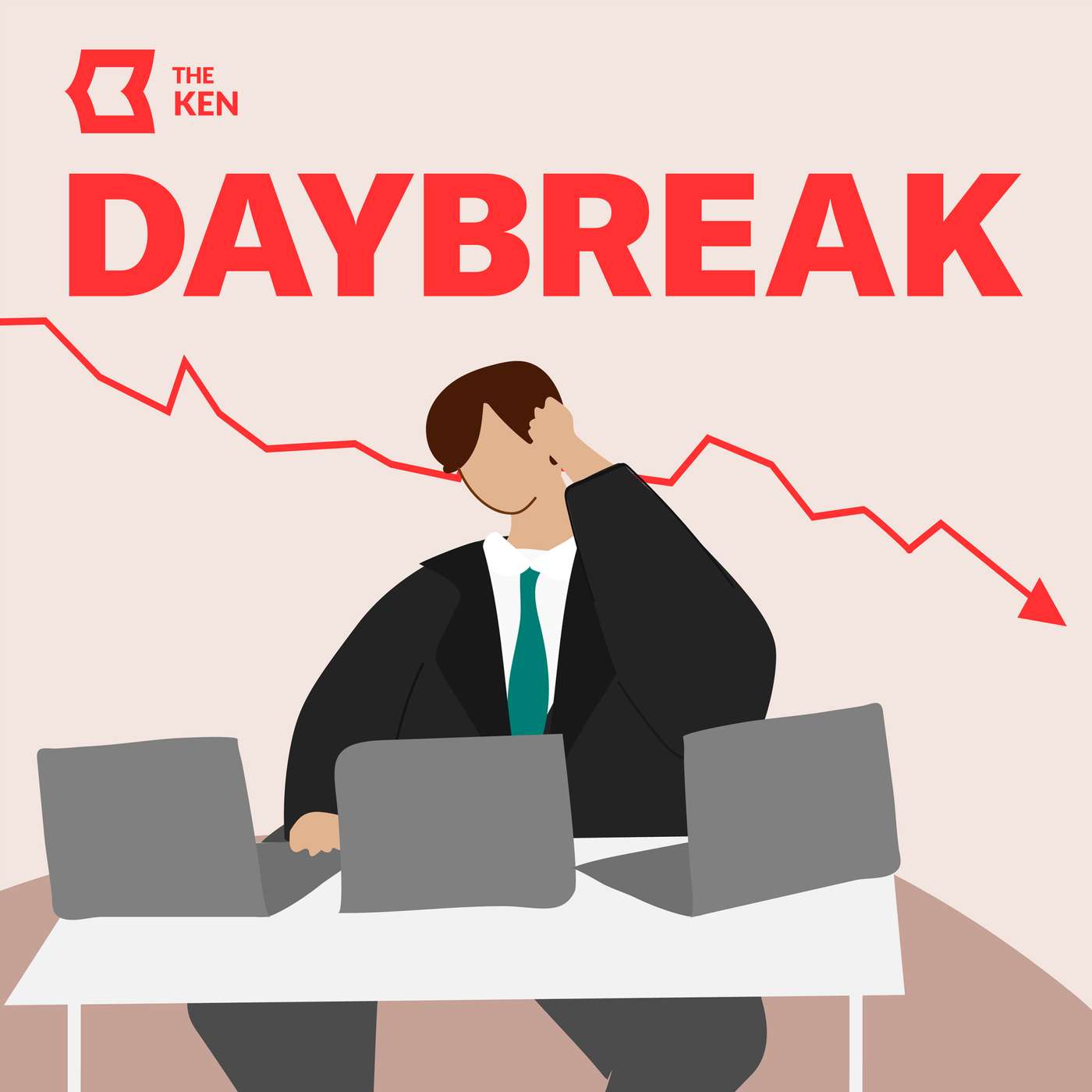
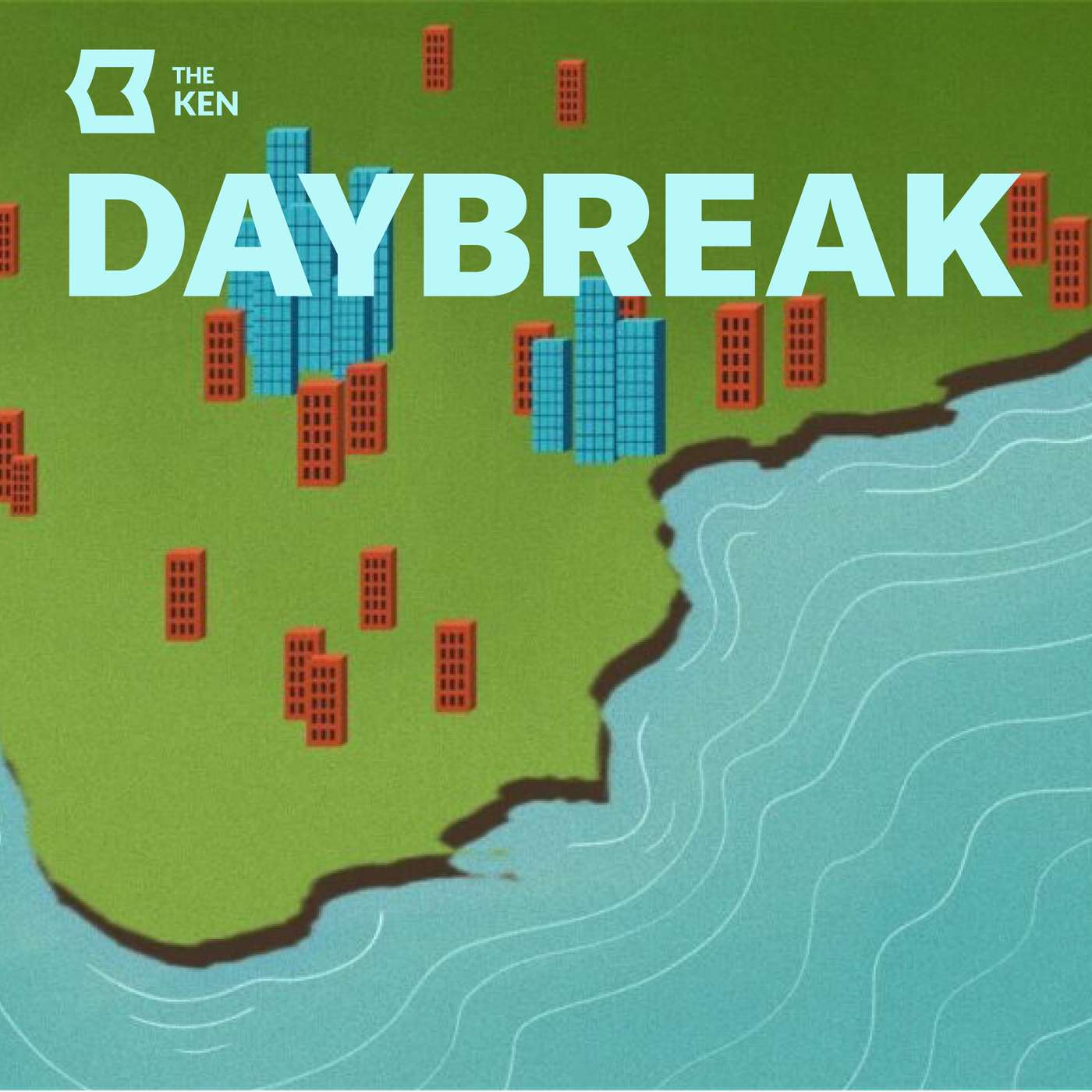
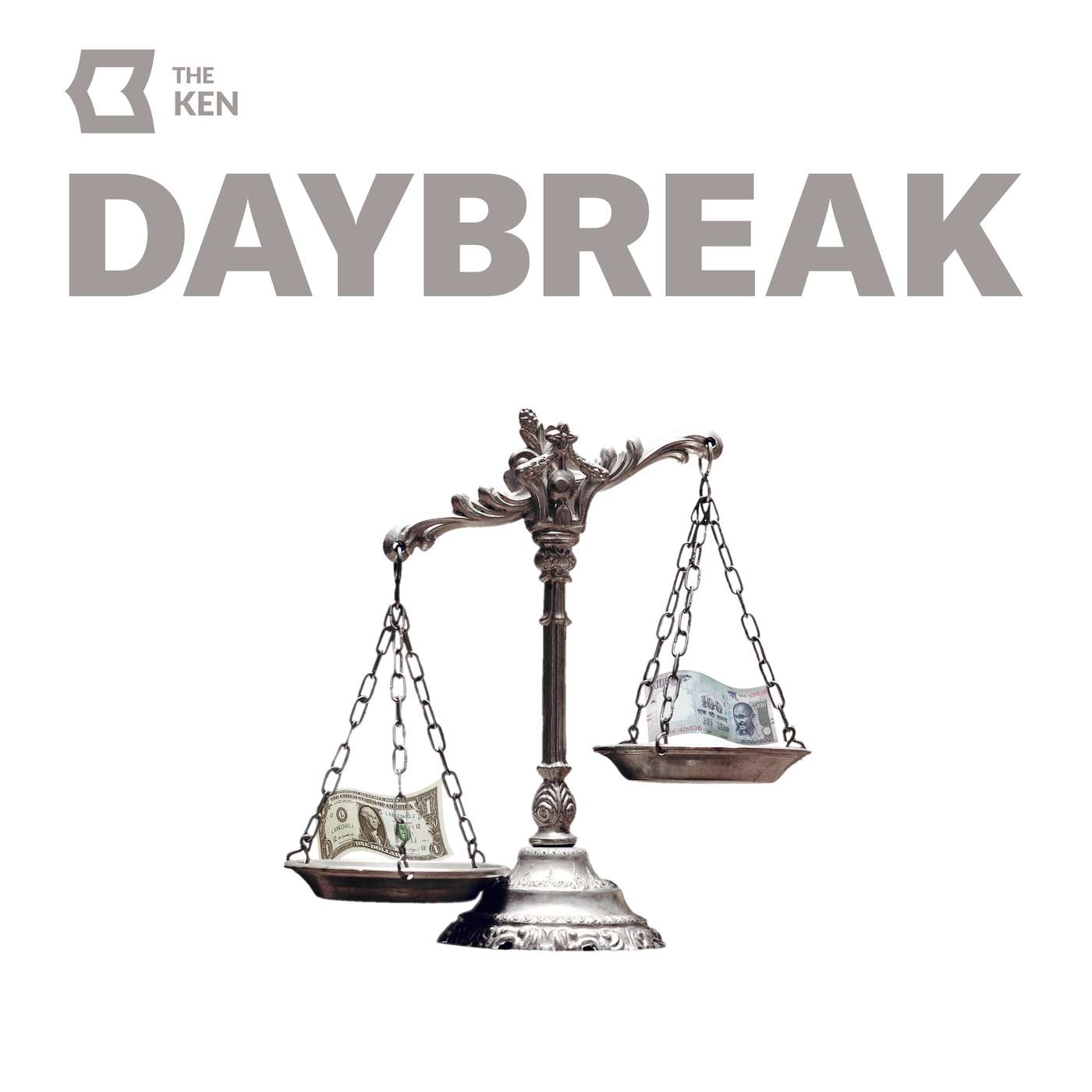
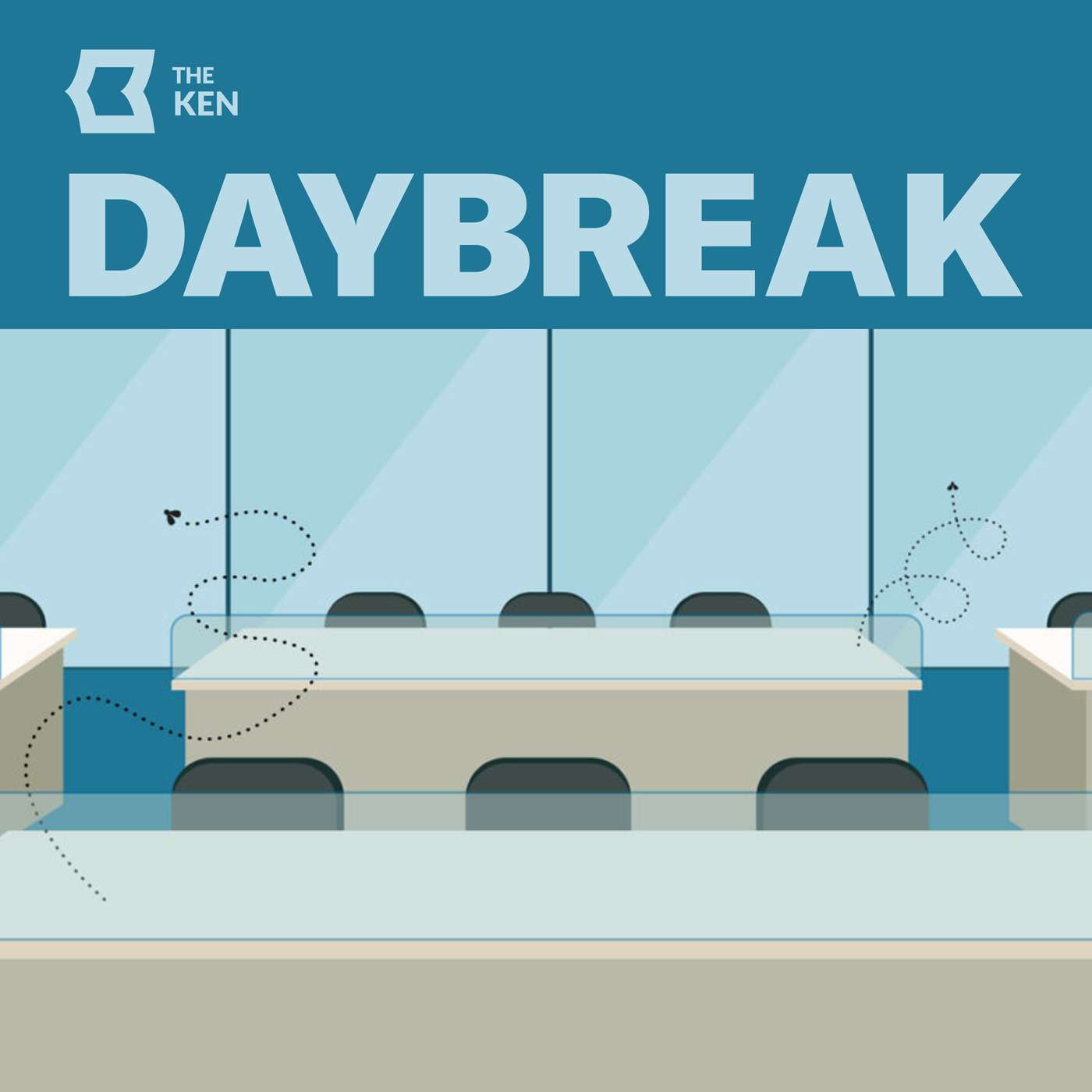



lol the roadshitters are talking about AI
Ruined my morning. Got a person who has no connect with the ground reality in India and wants to copy ideas from the US and force down our throats. absolute disgrace!
Very important investment regulatory issue highlighted.